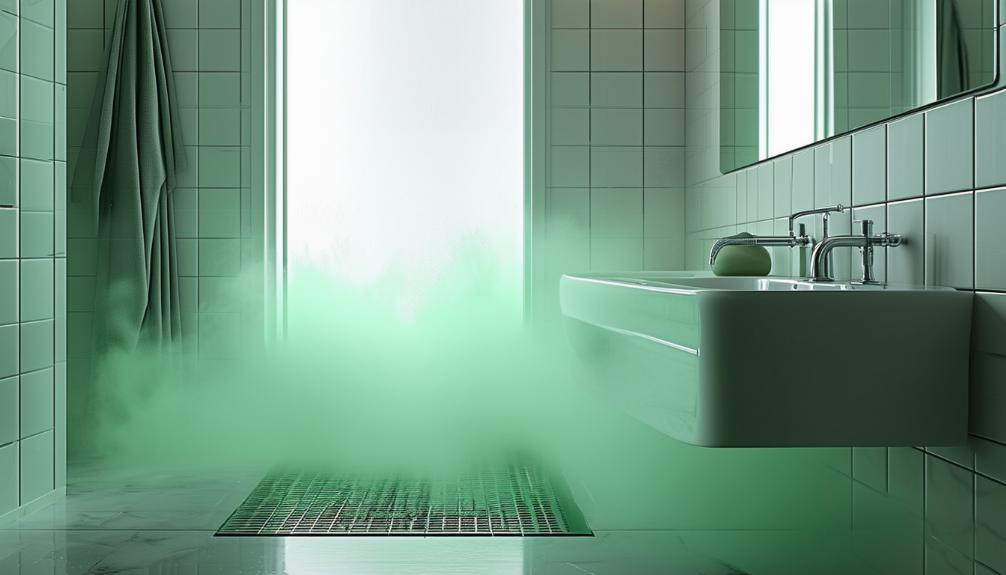Have you ever walked into your bathroom and been hit with an unpleasant sulfur smell? It can be both frustrating and embarrassing. That rotten egg odor is a common issue, but it’s not one you have to live with.
The culprit is usually hydrogen sulfide gas, often caused by bacteria in your plumbing or a dry drain trap. Left unchecked, it can lead to bigger plumbing problems and discomfort in your home.
In this guide, we’ll explore the reasons behind that sulfur smell and share practical solutions to eliminate it for good. It’s time to make your bathroom fresh again!
Key Takeaways
- Hydrogen sulfide gas, produced by bacteria in pipes or contaminated water, often causes the sulfur smell in bathrooms.
- A cracked or dry P-trap allows sewer gases to escape, contributing to the unpleasant sulfur odor in your bathroom.
- Regularly check and replace the anode rod in your water heater to prevent the buildup of sulfur-producing bacteria.
- If sulfur smells persist after DIY fixes, professional plumbers can diagnose and resolve complex plumbing or drainage issues.
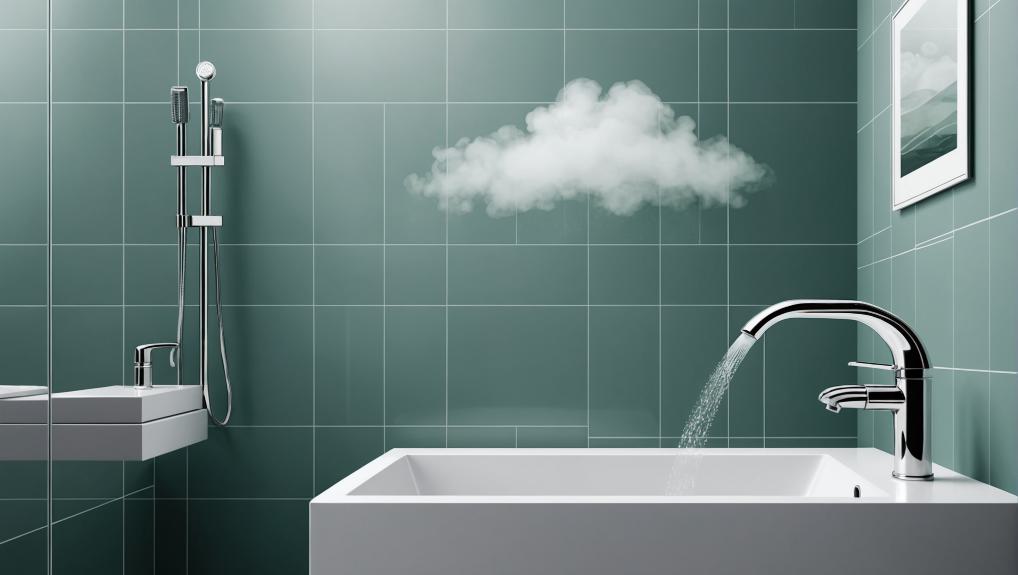
Why Does My Bathroom Smell Like Sulfur?
A sulfur smell in your bathroom usually stems from hydrogen sulfide gas produced by bacteria in pipes, fixtures, or contaminated underground water sources. This gas emits a rotten egg odor that’s hard to ignore. Bacteria thrive in dark, damp environments, making bathroom plumbing a prime breeding ground.
One common cause is a cracked or dry P-trap. The P-trap holds water to create a barrier that prevents sewer gases from entering your home. When it dries out or cracks, these gases escape, causing unpleasant odors. This issue is especially noticeable in fixtures that aren’t used frequently.
Contaminated groundwater is another potential culprit. If the water supply itself is tainted, hydrogen sulfide can be present, leading to a pervasive sulfur smell. This indicates a possible problem with your water source that may require professional attention.
Blocked vents or stagnant water in capped-off pipes can also contribute to the buildup of bacteria, resulting in localized sulfur odors. These vents and pipes allow for proper airflow and drainage. When they’re blocked, bacteria thrive, producing that unmistakable sulfur smell.
Addressing these issues often involves ensuring proper plumbing maintenance and, if needed, consulting professionals to check for groundwater contamination or plumbing damage.
Identifying the Source
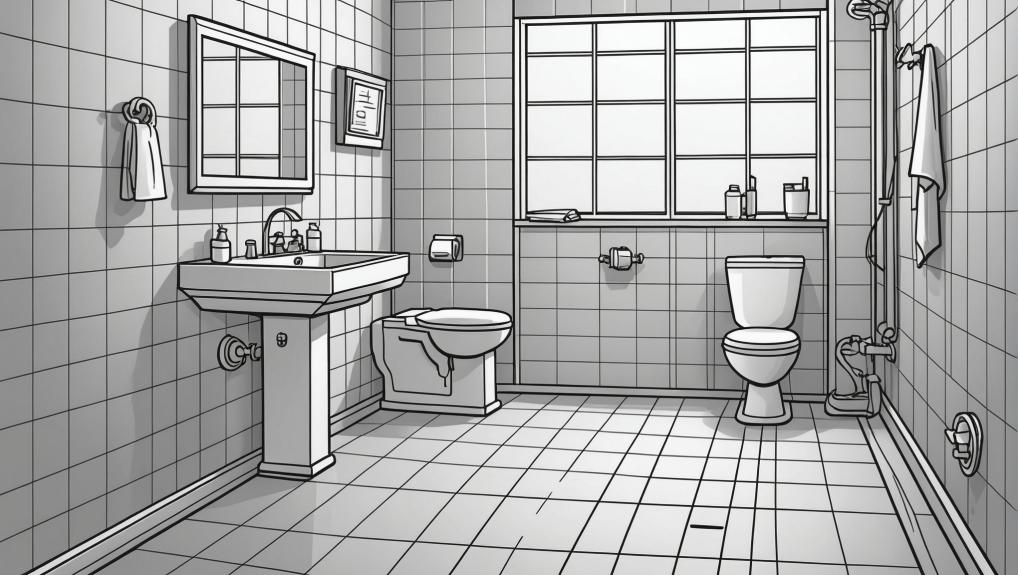
To identify the origin of the sulfur smell in your bathroom, start by testing water samples from various fixtures. This helps determine if the odor is in the water supply or localized to a specific drain.
If you notice a strong sulfur smell in the hot water but not in the cold, the water heater might be the issue. However, if the odor is only evident in one sink, it could indicate plumbing problems like bacteria growth in pipes or a blocked drain.
If the sulfur smell intensifies after flushing the toilet or using large fixtures, drainage issues might be the cause. These problems often stem from blocked vents or waste pipes, which trap gases and emit unpleasant odors.
Also, inspect the P-trap under sinks and other fixtures. Cracks or dryness in the P-trap can let sewer gases escape into the bathroom. Resolving a dry P-trap is often as simple as running water down the drain.
Fixing the Problem
To fix the sulfur smell, start by testing water from various fixtures to determine whether the odor originates from the water supply or the drain system.
If the water heater is the culprit, replace the magnesium anode rod with an aluminum one and disinfect the tank using hydrogen peroxide.
For well water users, disinfect the pressure tank and add bleach to eliminate bacteria or contaminants.
Regularly run water down infrequently used drains to keep P-traps from drying out and prevent sewer gases from escaping into the bathroom.
If these solutions don’t work, call a professional plumber. They can check for drain blockages, cracked pipes, or mold growth, which might require specialized remediation.
By following these steps, you can eliminate the sulfur smell and keep your bathroom fresh.
Let’s tackle this issue head-on to ensure our homes remain comfortable and odor-free.
Drainage Solutions
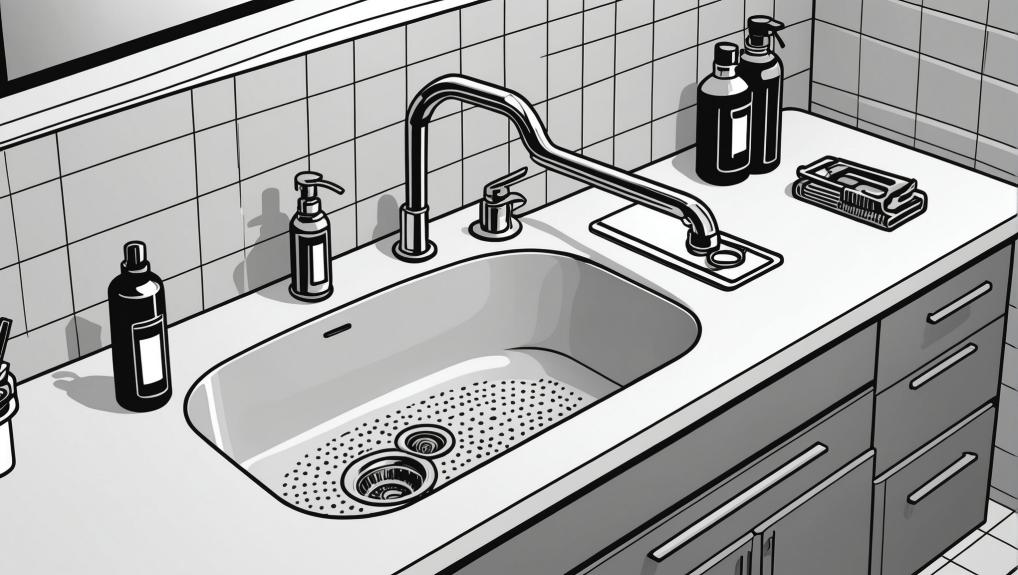
Blocked vents and drainage issues in your plumbing system can lead to unpleasant sulfur odors in the bathroom. These problems often manifest through gurgling sounds and slow drainage from sinks or toilets.
Regularly plunging your toilets can help clear obstructions in the waste lines that might be causing these foul smells.
Inspecting the roof vent stack for debris blockages is also vital. A blocked vent stack can prevent proper airflow, exacerbating bathroom odors. Use a flashlight to look into the vent and a long tool or garden hose to remove any debris if it’s safe to do so.
In colder months, ice can block vent pipes, worsening drainage issues. Using a hair dryer to melt the ice can alleviate these blockages, thereby reducing foul smells.
Be cautious and safe when dealing with electrical devices near water.
When to Call Professionals
If the sulfur smell persists despite thorough cleaning and disinfecting, it’s time to call in professionals for a detailed inspection. Persistent odors, especially those that intensify after flushing or using large fixtures, often indicate drainage issues requiring expert attention.
If water tests reveal contamination, contact a plumbing professional immediately. They can identify the source of the problem and ensure your water quality is safe.
Suspecting mold growth due to leaks also warrants professional intervention. Experts can conduct proper remediation and restore affected areas, preventing further damage.
Preventative Measures
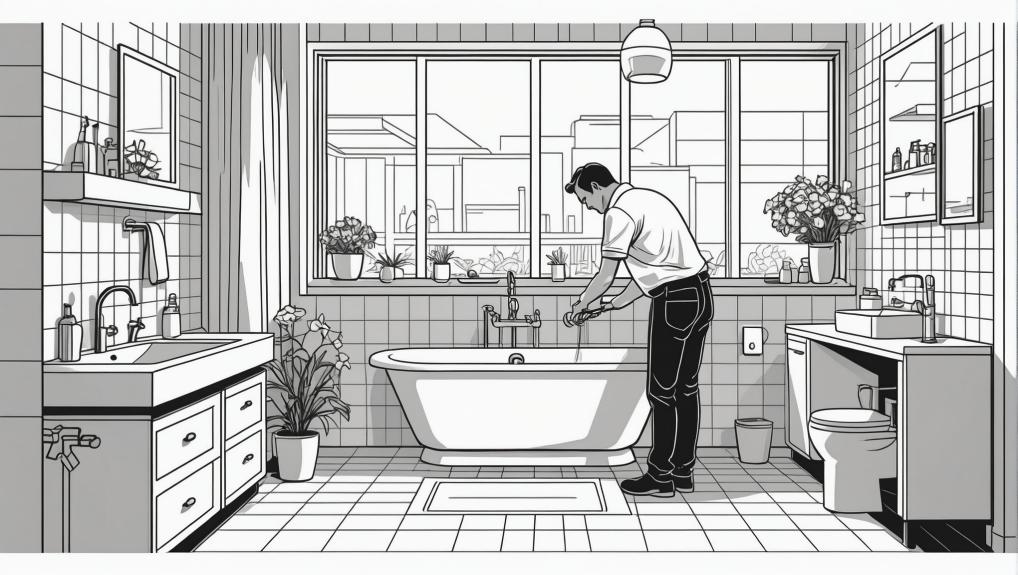
To keep bathrooms free from sulfur smells, start with regular maintenance:
- Flush and Run Water: Regularly flush and run water down infrequently used drains. This simple step prevents the P-trap from drying out, stopping sewer gases from entering the bathroom.
- Inspect the Water Heater: Periodically check and replace the anode rod in your water heater. This prevents the buildup of sulfur-producing bacteria, ensuring your water heater’s good condition and a fresh-smelling bathroom.
- Ensure Proper Ventilation: Confirm your bathroom has proper ventilation to reduce moisture levels, which inhibits bacterial growth often causing foul odors. Open windows or use exhaust fans to maintain air flow.
- Schedule Routine Plumbing Inspections: Regular plumbing inspections can identify and resolve potential issues like cracked pipes or drain blockages before they become major problems, helping maintain a clean, odor-free bathroom.
- Use and Maintain Water Softeners: Using water softeners with appropriate filters and maintaining them regularly can prevent contamination, guaranteeing clean and odor-free water.
Frequently Asked Questions
Can Sulfur Smell in the Bathroom Affect My Health?
Yes, a sulfur smell in the bathroom can harm your health. Prolonged exposure to hydrogen sulfide, the gas responsible for the odor, may cause headaches, dizziness, and nausea. Higher concentrations can lead to respiratory issues. It’s crucial to identify and fix the source promptly to ensure safety.
How Long Does It Take to Get Rid of the Sulfur Smell?
Getting rid of the sulfur smell can take anywhere from a few minutes to several days. Quick fixes like running water can solve minor issues promptly, but more complex problems might require professional intervention and take longer. Let’s tackle it together!
Is It Safe to Use Chemical Cleaners to Remove the Sulfur Odor?
No, it’s not always safe to use chemical cleaners for sulfur odors. They might mask the smell temporarily but can react with bacteria to release harmful gases. Instead, consult professionals and focus on regular maintenance for a long-term solution.
Can Sulfur Smell Indicate Problems Beyond the Bathroom, Like in the Kitchen?
Yes, a sulfur smell can indicate problems in the kitchen as well. If the kitchen and bathroom share plumbing, both areas may be affected. Contaminated water or blocked vents could be causing the odor. Check both locations for potential issues.
Conclusion
If your bathroom smells like sulfur, it’s likely due to hydrogen sulfide gas. This can come from plumbing issues or problems with your water heater.
To identify the source, check for stagnant water, damaged P-traps, or issues with the anode rod in the water heater.
Fixing the problem involves maintaining plumbing, testing water samples, and ensuring proper ventilation. If the smell persists, call a professional.
Regular maintenance can help prevent these unpleasant odors from returning.

